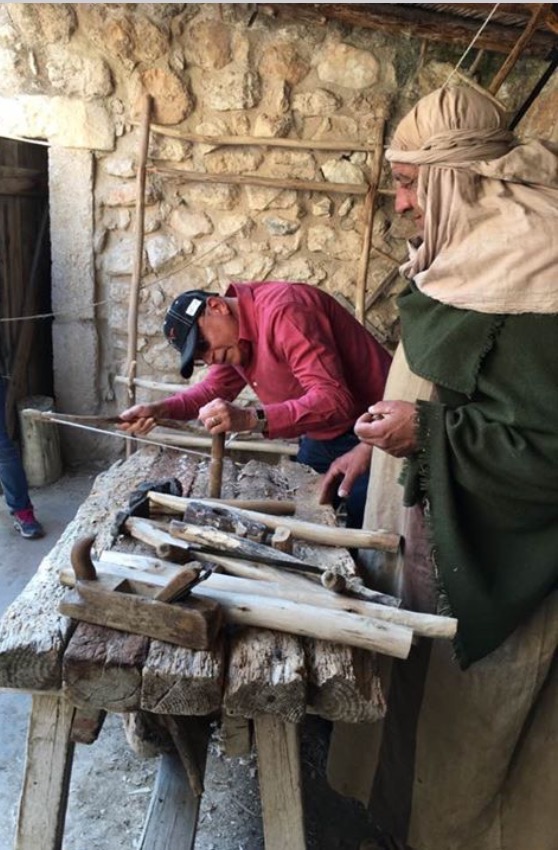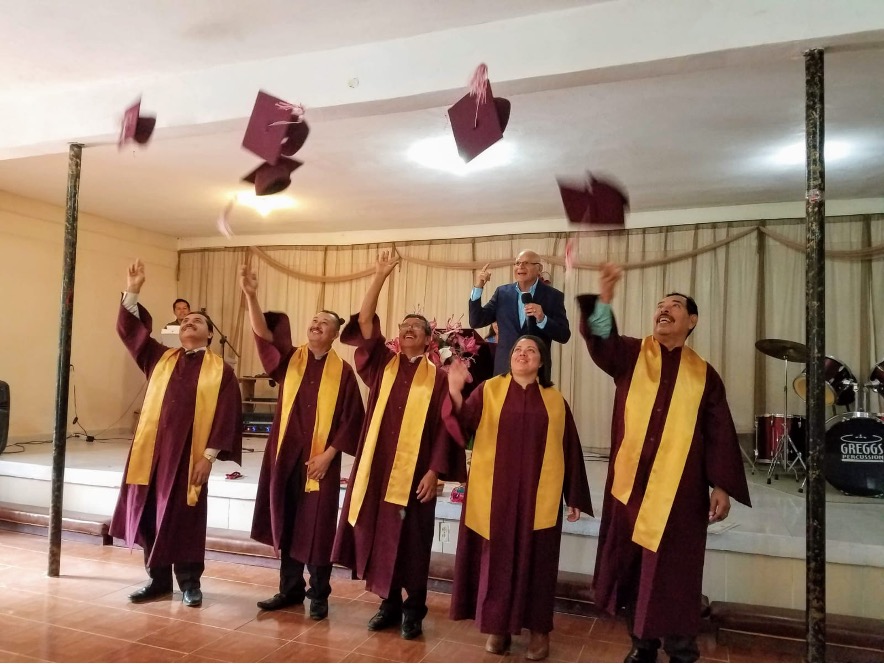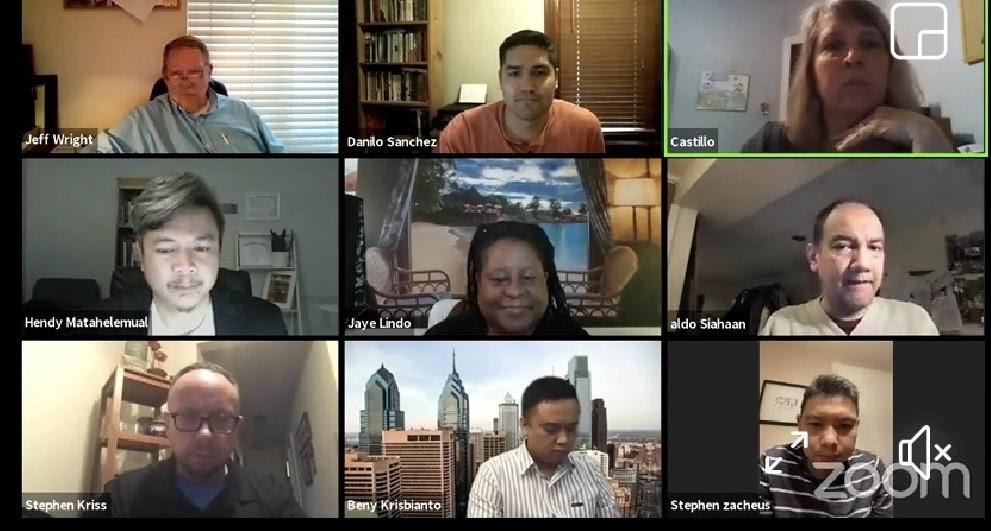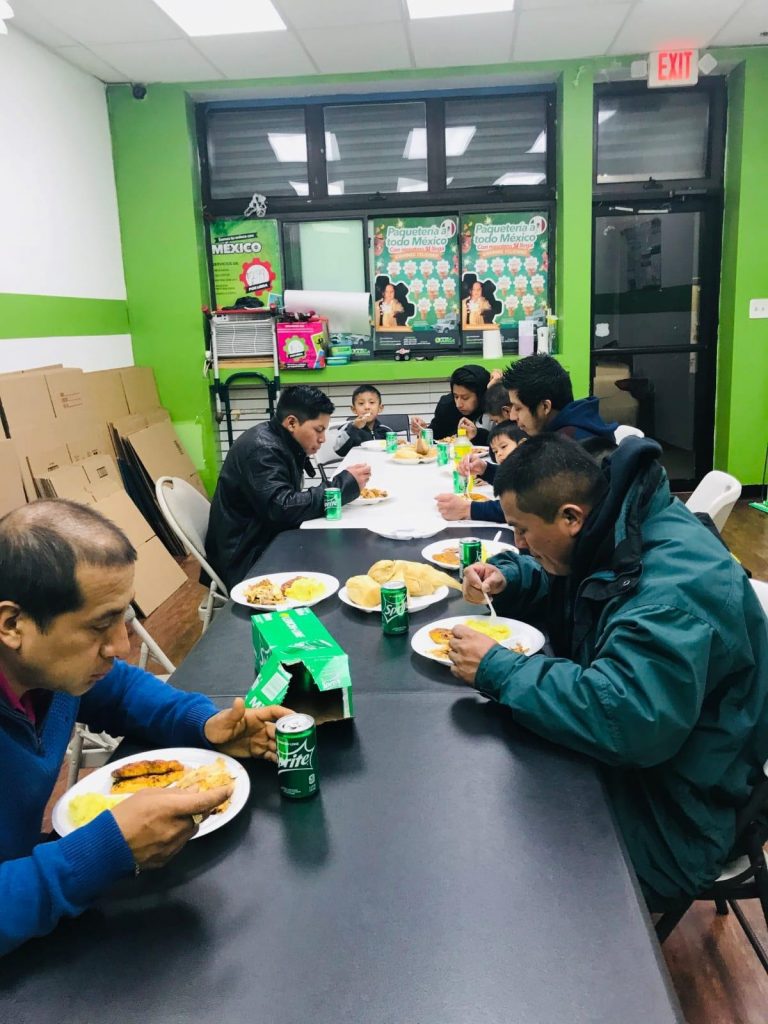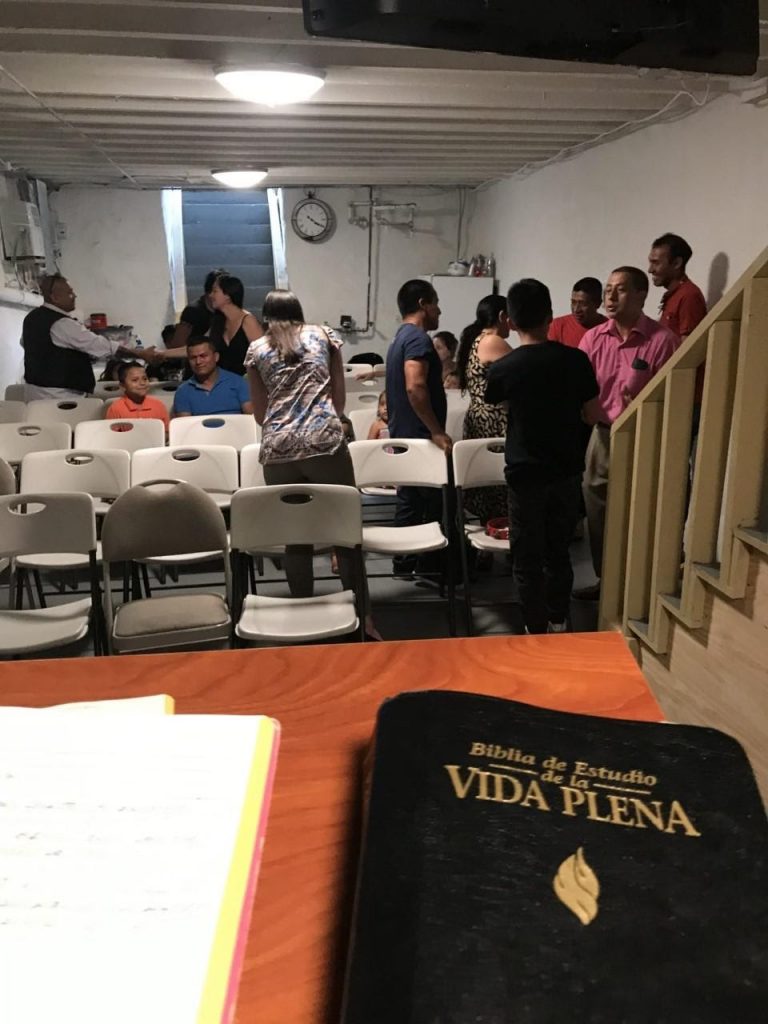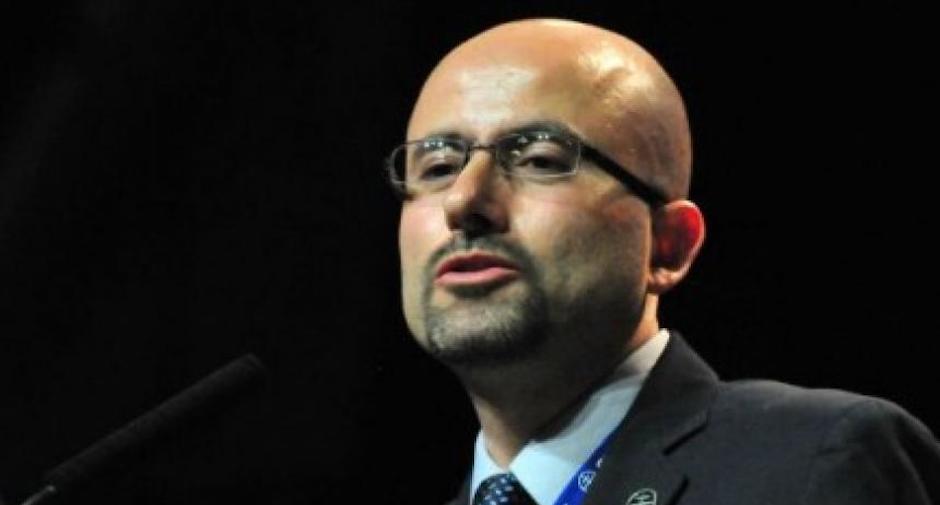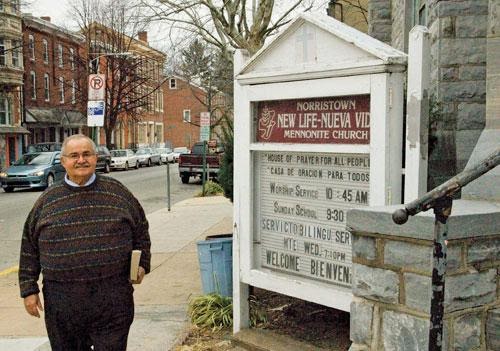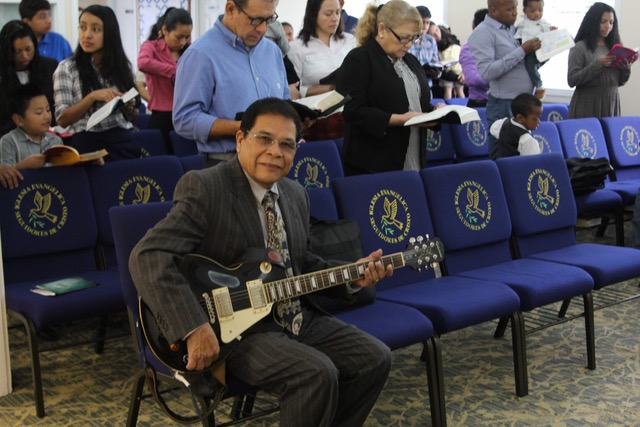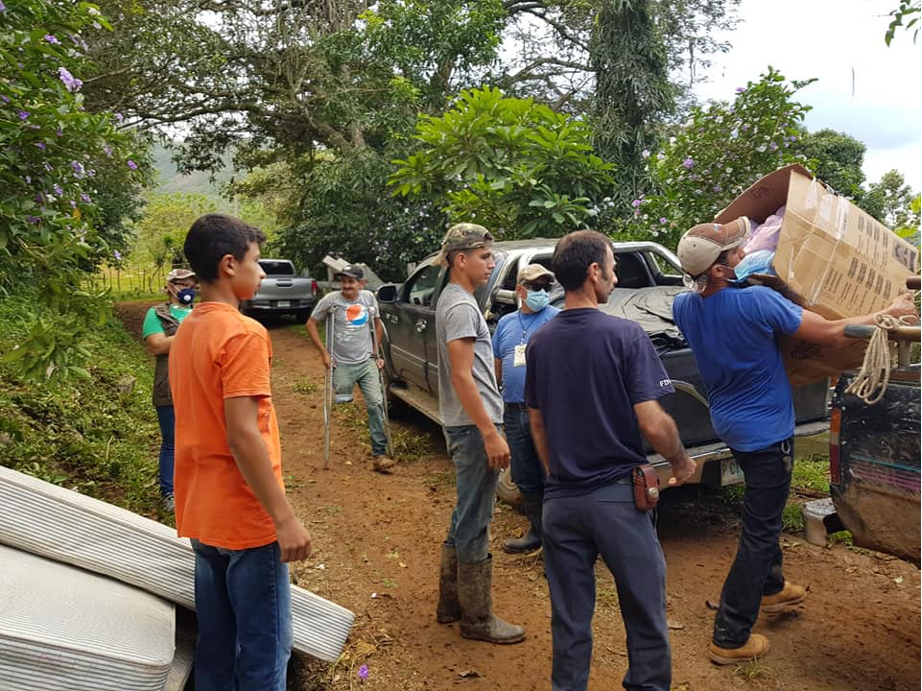Translated into English by Andres Castillo
In the last articles we briefly told of the founding of the Instituto Bíblico Anabautista (IBA; Anabaptist Bible Institute) as well as some people involved in the original proposal which has grown to be a fundamental part of our Hispanic churches throughout the United States.
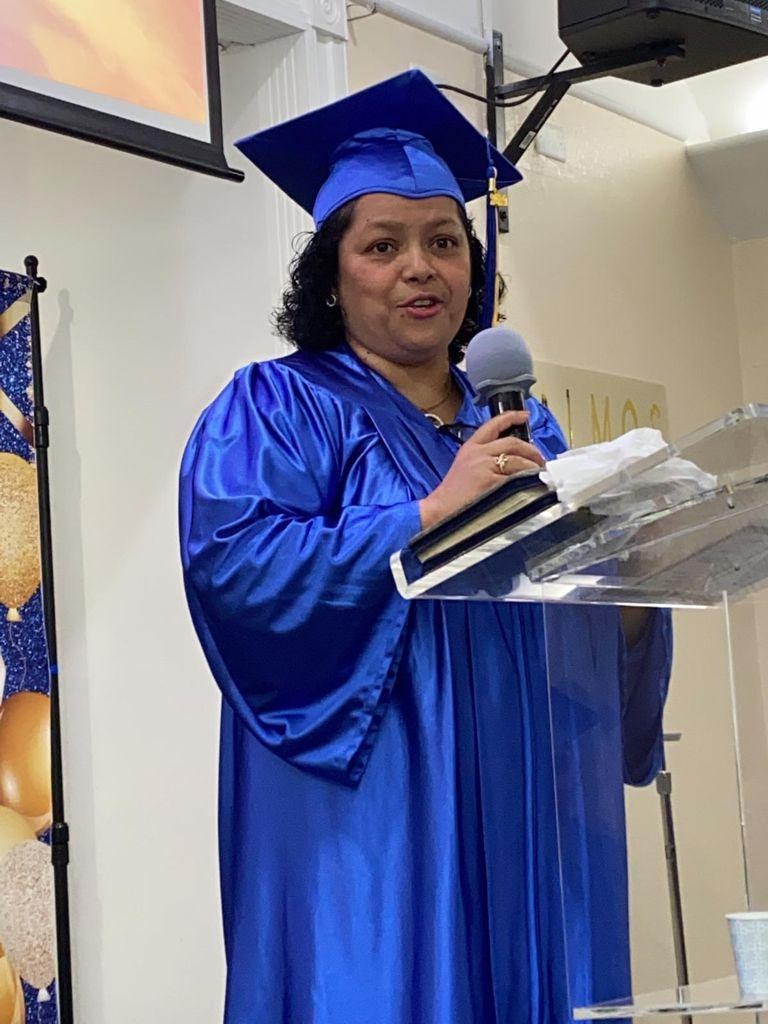
It is important to note that the IBA today has centers in virtually every area where there is an Anabaptist Hispanic church, and that it has been a fundamental resource for the training of properly grounded pastors who lead the churches God has called them to.
The IBA’s mission doesn’t only manifest itself in that it receives people of all education levels. In fact, it tries to be an education center that prepares the leadership of communities in a comprehensive manner. This is why the IBA rejoices when a non-pastor student joins and finishes the program. This was the case of Fanny Ortiz who, after five years of study, finally managed to graduate on March 19 in a celebration led by pastor Juan José Rivera at his church Seguidores de Cristo (Followers of Christ) in Sarasota, Florida.
She was to be able to see the characters of the Bible with a more realistic eye instead of sizing them on an Olympic scale, something that continues to impact her more than anything else learned in her
years of study. She saw that the stature of Bible heroes was not less, but more, admirable because they were just ordinary people who lived lives with the same difficulties as us, and yet decided to dedicate themselves to the service and obedience of the Lord.
Ortiz has recently finished her studies and is considering continuing to study soon at the Anabaptist Hispanic Bible Seminary (SeBAH). For now, she has decided to finish her nursing studies. She already has a degree of nursing assistant, exemplifying how personal goals are both those of the ministry and the professionals and boards in due time can be realized.
Those who are studying at the IBA, or who are thinking of doing it soon, should know that it is a place where all students share common experiences. Just as there are easy learning moments, there are others that are not so easy. In the case of Sister Fanny, a certain book on preaching was “not so easy.” It is a book she has since overcome, but not without shedding a few tears of struggle. She is now a graduate of the institute who feels she will be able to contribute much better with her service in the church and with her spiritual life for the years to come.

